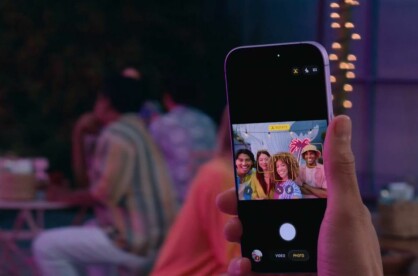Hussain Sunny Umar — tapping the Halal Tourism market
Dr. Hussain Sunny Umar talks us through the concept of Halal Tourism.

Dr. Hussain Sunny Umar
Dr. Hussain Sunny Umar talks us through the concept of Halal Tourism.

Dr. Hussain Sunny Umar
Dr. Hussain Sunny Umar is the founder of Maldives Halal Travel; MFR sat down with Dr. Umar for his unique insights.
The Maldives Financial Review: With are there essentially many definitions of Halal Tourism and what is your take on this concept?
Dr. Hussain Sunny Umar: There is no exact terminology used for the halal travel concept — as it is a huge potential market, everyone is trying to get into the trend. The research and literature states it as Halal Travel, Sharia Compliance Travel, Muslim Travel, Muslim Friendly Travel and so on. Basically, it's all pointing to the same thing — the Muslim travel market which is worth USD189 billion in 2019.
MFR: Currently, the Maldives is not included amongst the top countries in the world which attracts tourist from this segment. Being an Islamic nation, why have we not been unable to tap into the market?
Dr. Umar: It’s not that Maldives is “unable” to target the Muslim market, we just aren’t trying enough to reach them that much, because we are predominantly focusing on the European market. Tourism started with the European market and was successful. Then it was other markets including China, Indian, Korea, Japan and others.
The new government is keen on targeting new markets like North and South America, the Balkan Region and the Middle East. They have partnered with several PR companies and initiated various roadshows and travel fairs in these regions, and we — Maldives Halal Travel — are one of them. MMPRC wishes to explore new markets. They have assisted us both in partnerships and financially to explore and target the global Muslim travel market. As we all know, Maldives is on everyone’s bucket list and with the right efforts we can get them.

MFR: How do we attract tourists from this segment?
Dr. Umar: A planned marketing strategy is what we need. It has to start with pure research: travel numbers, demographic, trends and so on. At Maldives Halal Travel, we are doing some research with international affiliation, publishing written materials in Arabic and English language through our platforms, creating video content for resorts, providing information about Maldives in international travel fairs and attending conferences as a speaker, especially the Halal travel trade shows. But we are a small team. This has to be significantly massive to reach all Muslims globally — the 1.8 billion Muslim population.
We have a good airline connection from Qatar, Emirates, FlyDubai, Saudi Airline and other Middle Eastern airlines which make it very convenient for tourists to travel to the Maldives. We can focus mainly on the Gulf Cooperation Council (GCC) countries: UAE, Kuwait, Qatar, Bahrain, Saudi and Oman. GCC countries are some of the most lucrative nations in the world and considered as the lavish spenders when it comes to travel. Partnering with these airlines and running joint promotions in their language could be effective.
MFR: Critics say that in the Maldives, a resort operating under the Halal Tourism concept would face immense challenges from traditional resort operations; is this why no such venture has moved forward?
Dr. Umar: It’s a misconception. There were two instances’ where investors tried to build Halal friendly resorts: Caprice Maldives and Kaladhu Investments. Unfortunately, both failed due to various issues but not related to the Halal concept or model. The guesthouse and homestay model are a small version of Halal Tourism, and it looks like it will prevail. Multinational companies are targeting this segment like Nike, Adidas, H&M, Netflix, McDonalds and so on. They focus simply because it’s a lucrative market and it has unique preferences.
It’s important to further understand that almost all the travelers coming to Maldives will know it’s a Muslim country. The travel agencies will advise them on the materials they cannot have in their luggage, even the airlines announce the materials they cannot carry in Maldives. Muslims constitute up to a third of the global population; there are more Muslims in India (204 million) than Pakistan (200 million), Russia has more Muslims (14 million) than some Muslim majority countries and it is the fastest growing religion in the world. So, the Muslim dilemma is not a new phenomenon. The United states, UK and European are operating halal food, Islamic finance, modest fashion, and various other Halal businesses.
Similarly, when it comes to the Maldives, all resorts accommodate for Halal travellers on request. The resorts are also slowly growing and adapting with this growing market movement to facilitate appropriately. One of the biggest advantagse in the Maldives is that you get a lot of privacy in big villas. You have access to Female butlers, Qibla directions, Mosques; basically, everything is tailored to your own needs. The number of arrivals from the Middle East in 2021 has doubled, to 84,000, compared to the 40,000 in 2019.
Since Maldives hasn’t been marketed as a halal country previously, people have these misconceptions.
MFR: Is Halal Tourism and local tourism different? Or is there an overlap between these two?
Dr. Umar: It’s different. Local tourism generally focuses on global tourism; however, Halal Tourism aims to attract a specific target segment. The only similarity between these two is that both segments are in-line with our Muslim culture. An example would be separating bikini beaches with public beaches unlike in resorts, there are no alcohol or pork in local islands either. So, in a way, they do offer the same things, but they are marketed differently at the moment.
MFR: What are the chances of success of Halal Tourism in local islands? And how can islands prepare for this market?
Dr. Umar: Anything can be successful with the right marketing and provision of services. But since Maldives is famous amongst tourists for its resort tourism, they may prioritise going to resorts.
If you look at the past seven years, a lot of tourists were unaware that Maldives has budget tourism or guesthouse tourism. And it was this way, until Orca Media Group published the first Guesthouse magazine (now rebranded as Local Island Tourism Magazine) and began guesthouse marketing in the international travel fairs. Orca Media was the only institution marketing the guesthouse industry from 2015 – 2018. Not even the government was involved at that time.
Due to this, there has been a slow but some growth in local tourism. It will be the same with Halal travel. In 2018, as part of its efforts to promote the local tourism concept; the new government started marketing the guesthouse industry and from this, some growth can be seen. Even today, the entire guesthouse industry needs much support whether it be Halal or not.
Maafushi, for instance, is a local island that has gained its popularity amongst a lot of tourists, not because it is close to the airport or it is a Halal Tourism concept, but because it has been promoted the right way since the very beginning. Just like Maafushi, there are plenty of other beautiful local islands doing well: Thoddoo, Rasdhoo, Dhigurah and islands in Vaavu atoll.
With 650 plus guesthouses, with over 10,000 beds, and more joining from homestay category, I predict prosperity to Halal travel in local islands. But this takes effort and time marketing to that segment. A lot can be done in social media platforms. Islands can theme themselves uniquely just like Maamigili – themed as the whaleshark island. There has to be a story. Something more to the sun, sand and sea. And this has to go on for a consecutive period of time.

MFR: What is the future for the Halal Tourism sector?
Dr. Umar: Globally speaking, it is a robust market, promotion of halal travel has increased like never before, even the Muslim minority countries like Korea and Japan are targeting the Muslim segment. The World’s First Europe Halal Conference held in Spain in 2014 played an important part. It was a beacon for other countries in Europe, America and Asia to host halal fairs, tradeshows, conferences, and expos in their respective countries. Various firms are engaged in research and understanding the market preferences like MasterCard. The Maldives, in 2021 participated in exclusive Halal fairs and conferences: the USA Halal Expo, OIC Halal Expo in Istanbul, Dubai Modest Show, Global Halal Conferences, and MASICNA USA.
For the Maldives, I am not implying we remove our focus on the current target markets and only promote Halal Tourism. We all know that it’s important to have a global focus on market segments when it comes to the tourism industry. It is best to carry out the strategic plans and assist in the growth of the industry by carrying out our promotions for all target markets accordingly.
Newly introduced Homestay tourism is a huge opportunity to showcase our Maldivian culture and religion. The biggest concern from the public about homestay tourism is how locals will be exposed to tourists in their bikinis; but I don’t believe that is a problem of the homestay tourism concept.
All of this can be regulated by implementing laws. With the right measures, this ought to be a great opportunity to market the authentic Maldivian experience and will help to communicate with travellers better. It may even help with connecting travelers and locals to eliminate islamophobia.



